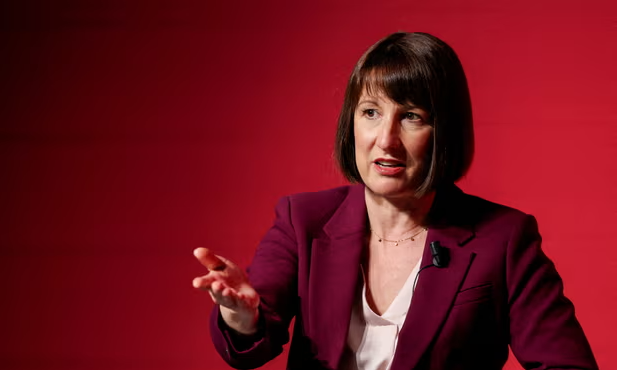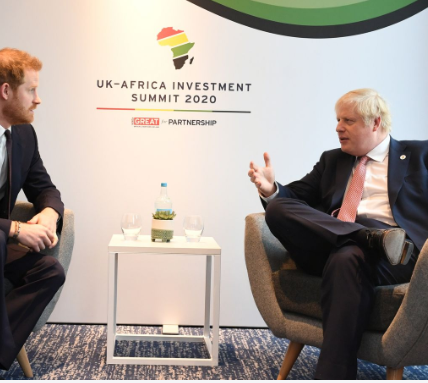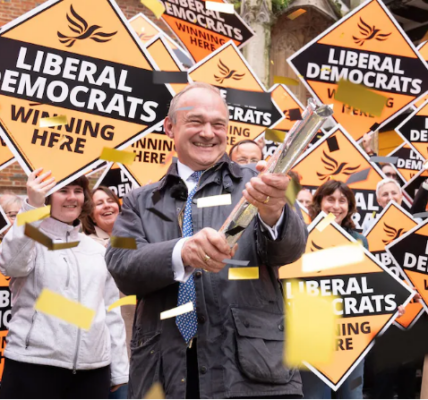Frustration grows with chancellor locked away in Treasury and facing competing challenges for her historic speech

Rachel Reeves has agonised over which course to take. Photograph: Phil Noble/Reuters
On Saturday Keir Starmer and his government had been in office for 100 difficult days. Far-right riots, rows between top officials in No 10, a furore over freebies in an administration claiming to be in the service of the nation. Starmer now refers to them as “choppy days”, and the latter two as “side winds” he insists will not push him off course.
For cabinet ministers in big spending departments, another frustration has mounted since they celebrated winning a landslide on 4 July. Waiting for the budget. New governments – Labour’s in 1997, and the Tory/Lib Dem coalition in 2010 – have tended to hold their first budgets in double-quick time to set direction and establish a clear sense of purpose.
The first budget by this Labour government will not happen until almost four months after it came to power, on 30 October. Under the fiscal transparency system Labour decided to bring in to restore confidence after Liz Truss, the Office for Budget Responsibility has had to be given time to look over the figures, do forecasts and check everything stacks up. All the while ambitious members of the cabinet have been tearing their hair out.
Reeves has, they say, locked herself away in the Treasury, agonising over what to do. “We can’t get anywhere near her,” one cabinet colleague said. “We can’t get past Darren,” they said, referring to Darren Jones, the chief secretary to the Treasury, who is Reeves’s number two and effective gate keeper.
Amid the gathering turmoil and, some would say, lack of clear sense of direction, cabinet ministers have been itching to make announcements or least float ideas. But without knowing if they will be given money to do so, either in the budget or next spring’s spending review, it has not been possible. “We are all rather constrained. It has been a problem,” one said.
When Reeves does get up to the deliver the first budget by a female chancellor in this country’s history, it will be a huge moment in other ways too.
No new occupant of the post can ever have faced so many competing challenges. One – notably the £22bn black hole in the public finances she inherited – can rightly be blamed on 14 years of Tory government. Others, more strategic and tactical, are of Labour’s own making. They have boxed themselves in.
Before the election, to convince voters it would be fiscally responsible, Labour promised to be bound by strict fiscal rules both on spending and future investment.

The party promised not to raise taxes for working people and so ruled out increasing their income tax, VAT or national insurance. It also boldly pledged to spur new growth and create the fastest growing economy in the G7.
The promises did not end there. Since the election Starmer has said again and again that there will be no return to Tory austerity and no broad-based cuts to public services.
Now the time to begin to deliver growth and repair public services while not raising working peoples’ taxes is only 17 days away.
One former Tory cabinet minister put it this way: “They have said they will not go back to austerity and that they will rebuild services while not raising tax on working people, but they are going to have to find the money from somewhere.
“We are talking huge sums. The Institute for Fiscal Studies says they need to raise £25bn in taxes. But if they are going to achieve that and keep to their promises all the choices are going to be really difficult.
“They have made life much harder for themselves because they have ruled out putting up income tax, VAT or increasing working people’s national insurance. Between them that is about 75% of all revenue.”
He added: “They kind of muddled through in the run-up to the election saying it would all come from economic growth, but that was never really sustainable as you never can rely on growth.”
So with the credibility of the government on the line, where will Reeves go to raise the money?
To start with, she is widely expected to alter fiscal rules to allow more long-term borrowing for investment. Some believe this could worry the financial markets unless it is made clear that this borrowing would be strictly limited.
The expectation in Whitehall is that Reeves will move to raise many billions by hiking employers’ national insurance contributions, after Starmer refused to rule this out at prime minister’s questions on Wednesday.
Challenged by Rishi Sunak, Starmer swerved: “We made an absolute commitment in relation to not raising tax on working people,” he said, not saying if Reeves could sting employers instead.
It is also believed that the Treasury is looking at raising more billions by upping NI on employers’ pension contributions, in what one Whitehall source said would be a “double whammy for businesses”. At the same it is expected to raise the main rates of capital gains tax by a few percentage points. Finally, the Treasury may try to pull in some extra revenue by increasing inheritance tax, and perhaps ending the system by which pension pots can be handed down the generations without being taxed.
Another government source added that none of this looked particularly coherent just as the government prepares to host an investment summit in London on Monday for global business leaders: “The problem is we now appear to be ready to pan business at the very time when we are trying to get growth going. The real effect of hitting businesses with NI rises will turn out to be on working people. They will be the ones who receive smaller pay rises as a result. The other shakeout will be job losses.”
A former Treasury insider said this administration was struggling not just with the mess the Tories left, but also their own lack of planning. “My sense is that they really did not have much of a plan for coming into government, partly because they thought it would be better to do that once in power with the help of civil servants.
“In 1997 and 2010 the plans were much more advanced. This lot are having to do a lot of catch-up. They need a reset and a relaunch, a complete change of gear. The obvious time to do that is the budget. But there is no easy way. You can’t raise these sums without some pretty mighty rows,” the former insider said.




